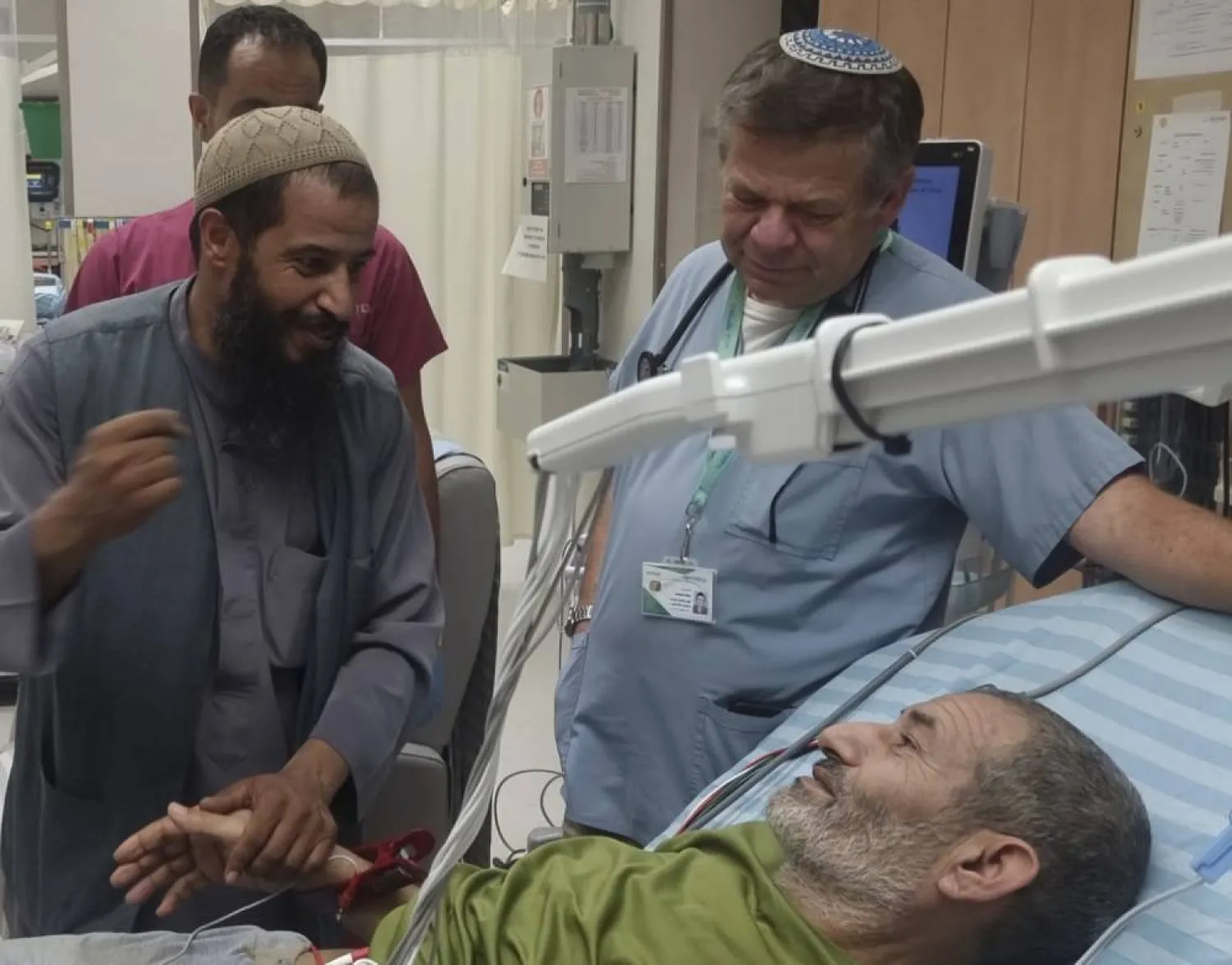Israel said it rescued a hostage from an underground tunnel in Gaza on Tuesday, freeing one of the scores of people abducted during the Oct. 7 attack by Hamas that ignited the war in Gaza.
The rescue brought a rare moment of joy to Israelis after 10 months of war but also served as a painful reminder that dozens of hostages are still in captivity as international mediators try to broker a ceasefire in which they would be released.
The military said Qaid Farhan Alkadi was rescued from a tunnel in a “complex operation” in the southern Gaza Strip, but provided few other details. It was not immediately known if the rescue was made under fire or if anyone was killed or wounded during the operation.
Alkadi was one of eight members of Israel’s Arab Bedouin minority who were abducted on Oct. 7. He was working as a guard at a packing factory in Kibbutz Magen, one of several farming communities that came under attack. He has two wives and is the father of 11 children.
The 52-year-old is one of eight hostages to be rescued alive, and was the first to be rescued from underground, the Israeli military said.
The Israeli military released footage showing Alkadi moments after the rescue. Unshaven and wearing a white tank top, he is seen sitting and smiling with soldiers before boarding a helicopter to a hospital where he was taken for medical checks. He appeared gaunt but doctors described his condition as stable.
His large family and residents from around the Rahat area thronged the hospital in the southern Israeli city of Beersheba to welcome him home.
As Alkadi’s family waited to see him in the hospital, one of his brothers held Alkadi’s infant son, who was born while he was in captivity and had not yet met his father, the brother said.
“We’re so excited to hug him and see him and tell him that we’re all here with him,” a family member who gave his name as Faez told Channel 12. “I hope that every hostage will come home so the families can experience this happiness.”
Israeli Defense Minister Yoav Gallant said the rescue operation was part of the army's “daring and courageous activities conducted deep inside the Gaza Strip,” adding that Israel is "committed to taking advantage of every opportunity to return the hostages.”
Israel’s military spokesman, Rear Adm. Daniel Hagari, said Alkadi was “rescued from an underground tunnel following accurate intelligence.” Alkadi was held in a number of locations, including in underground tunnels, during his 326 days in captivity, Hagari said.
Israel’s Prime Minister Benjamin Netanyahu spoke with Alkadi by phone soon after he arrived at the hospital. He said that Israel would rely on rescue operations and negotiations to bring the remaining hostages home.
“Both ways together require our military presence in the field, and unceasing military pressure on Hamas,” Netanyahu said.
Hamas-led fighters abducted some 250 people in the Oct. 7 attack, in which some 1,200 people, mostly civilians, were killed.
Israel’s retaliatory offensive has killed over 40,000 Palestinians, according to local health officials, who do not say how many were militants. It has displaced 90% of Gaza’s 2.3 million people from their homes and caused heavy destruction across the besieged territory.
Israeli airstrikes continued on Tuesday across the Gaza Strip, and Palestinian officials said at least 18 people, including eight children, were killed in the attacks.
Israel believes there are still 108 hostages in Gaza and that more than 40 of them are dead. Most of the rest were freed during a weeklong ceasefire in November in exchange for the release of Palestinians imprisoned by Israel.
Two previous Israeli operations to free hostages killed scores of Palestinians. Hamas says several hostages have been killed in Israeli airstrikes and failed rescue attempts. Israeli troops mistakenly killed three Israelis who escaped captivity in December.
Mazen Abu Siam, a close family friend waiting at the hospital, said the family was overjoyed to hear the news, but they were still praying for a ceasefire.
“We are waiting for a deal for one year," Siam told The Associated Press.
The United States, Egypt and Qatar have spent months trying to negotiate an agreement in which the remaining hostages would be freed in exchange for a lasting ceasefire. Those talks are ongoing in Egypt this week, but there has been no sign of any breakthrough.
Netanyahu has faced intense criticism from families of the hostages and much of the Israeli public for not yet reaching a deal with Hamas to bring them home.
Hamas hopes to trade the hostages for a lasting ceasefire, the withdrawal of Israeli troops from Gaza and the release of a large number of Palestinian prisoners, including high-profile militants.
Last week, after the Israeli military recovered the bodies of six hostages in southern Gaza, Israel’s military spokesperson, Hagari, said the army was working to gather more intelligence for rescue operations. But he added that “we cannot bring everyone back through rescue operations alone.”









